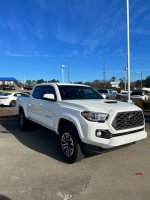This, people. All the modern turbo motors were built as turbos motors from the git-go. It's not like the manufacturers are taking some old four banger and just hanging a turbo on it to get the numbers they want. The latest engines are an integrated system, built with sufficient oil supply, cooling, and basic strength to deal with everything involved in running forced induction. Some don't like the idea of running more expensive gas, but the economy gains more than compensate in my experience. Ethanol content isn't an issue. Keeping it Toyota specific, many Toyota V6 motors would run on Regular, but the power was down on what was listed in the spec sheet if you did. Boy, could you tell in my late wife's Sienna minivan.
For sure, every so often a car maker will screw up making a turbo engine. The V6 Ecoboost is the prime example from a few years back. There were issues involving the intercooler in specific weather conditions. Ford's first 2.0 Turbo was a dog as it used a single scroll turbo giving eons of turbo lag. A later twin-scroll turbo with a better exhaust manifold sorted that issue.
I've also seen plenty of naturally aspirated motors with their own issues. Ever wondered why you see so few V6 GM cars from the 2000s still about? Bad gasket and intake manifold designs and materials. People got sick of trying to fix them. I've been told that the GM iron Duke motor is robust, but where are all the Pontiacs and Chevys that used them?

